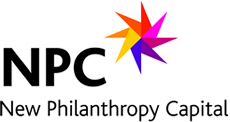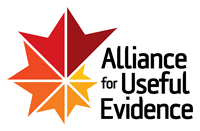Guest Blog: Social value matters: The need for a clear language, social data collection and capacity building
Social value matters: The need for a clear language, social data collection and capacity building
by Luis G. Fernandez, Charities Aid Foundation (CAF)
Social impact measurement is important because organisations need to know if they are achieving their mission. More importantly, social impact measurement ‘needs to fly’ because it is the only way to know if organisations are achieving the change that they want to see and the change that makes a difference to their beneficiaries. In fact, social value is ultimately the final goal and the key indicator of success. This is particularly true for organisations working in the philanthropy sector.
Social impact measurement is really far from being complex nowadays. Many tools have been developed and more organisations are ever more familiar with tools that are effective at capturing impact such as social return on investment (SROI). However, why is impact measurement still not motivating many social investors (from high net worth individuals -HNWIs-, philanthropists and corporates)? Ultimately, what needs to happen for impact to be at the core of social investors, philanthropists and donors planning processes?
1. Capacity building
I would say that one of the biggest challenges -if not the most important one- around social impact measurement and indeed social value creation is around capacity building.
Although social impact measurement is not as complex as it used to be in the past, it does require certain skills and capabilities. So, organisations trying to properly address social value creation and impact measurement should really focus in increasing the capacity of their teams, not just by using capacity building exercises but also, by attracting and bringing expertise from other sectors (i.e. academia, overseas development organisations, etc). I keep insisting about this in several global forums: impact is not complex but there is no shortcut. If we want social impact measurement to fly, we need capabilities, skills, social data collection, amongst other important elements that include adhesion to robust principles such as those in SROI.
2. Social data
I couldn’t agree more with a recent blog by Tom Adams from Acumen: “responsible collection of data” or collection of “decision data” is one of the key factors around social impact measurement that really matters. However, although there have been some significant milestones in social data collection, organisations and individuals still privilege financial data collection and data related to performance but not social impact.
If we want social impact measurement to be a constant practice within the philanthropy sector, organisations need to be aware of the importance and benefits of collecting social data related to their projects (e.g. corporate social responsibility –CSR—portfolios, etc.)
3. Performance vs. impact
Many organisations are still articulating their performance in terms of social impact. What they are actually reporting is performance and not social impact. It sounds really basic, but many organisations still talk about ‘how are they doing’ rather than talking about the social impact that ‘they are achieving’. Moreover, this practice is unfortunately embedded in some international standards, indexes, taxonomies available worldwide. Sadly, many organisations use these tools to ‘demonstrate’ their ‘impact’ and/or to benchmark themselves with other peers within their sectors that are also reporting on performance but not social impact.
I think that for impact measurement to fly, organisations need to be able to articulate a general language that practically and efficiently differentiates performance and social impact. More than anything, funders have the greatest responsibility to lead by example in the philanthropic sector.
4. Distractions
Unfortunately, there are many approaches and practices that are not making any favour to social impact measurement: from organisations advising clients using ‘integrated’ approaches to measure ‘impact’ and that are not really helping donors to understand the significance of their investment, to taxonomies that articulate ‘performance’ as ‘social impact’. Having said that, any approach that does not consider principles of economic, environmental and social sustainability is at risk to be considered just performance marketing (and is therefore at risk of being simply marketing and PR strategies).
While these four elements are important other issues such as donors’ level of sophistication, willingness to invest in impact measurement and understanding of the benefits of measurement also play important roles.
Overall, for social impact measurement ‘to fly’, the philanthropy sector needs to lead by example and challenge others to make social value a strategic imperative if we are going to achieve the type of social change we want at scale.
At the Charities Aid Foundation (CAF), when we advise our clients around their donations, we are articulating a clear language that differentiates performance vs. impact. We clearly explain the differences between outcomes and outputs and impacts. We are increasing our capacity to be able to effectively and efficiently use tools such as Theory of Change (ToC) to advise our clients and to clearly identify intermediate and long term outcomes and differentiate them from outputs. We have used the consultancy of the leading UK Think Tank to increase our skills and capabilities to be able to deliver social impact reporting with a robust approach.
We are using social impact measurement to support NGOs and donors in emerging markets to create social change. We are pioneering in some of the different markets in which we operate supporting around 50,000 NGOs worldwide, managing over £2.8bn of assets on behalf of our clients and distributing funds to over 90 countries.
This article was produced for the SROI Network and for the SROI Conference, Social Value Matters, which took place on 12th and 13th June 2014.
Luis specialises in economic and social impact analysis across international development; public policies for poverty and gender equality; and, development and humanitarian assistance. He has a strong international development background having previously worked for the UNDP, UNICEF, NGOs and international governments in several countries. Luis expertise also covers monitoring and evaluation, social impact measurement and sustainability reporting. He was awarded with a PhD in Social Policy by the University of Bristol after his research on economic and social impact of structural adjustment in Africa and Latin America. Luis also led the design and implementation of advocacy plans for UNICEF and UNDP in and Africa, East Asia and Middle East.





